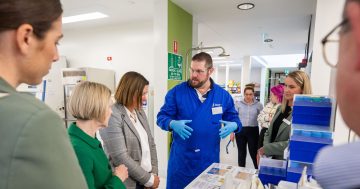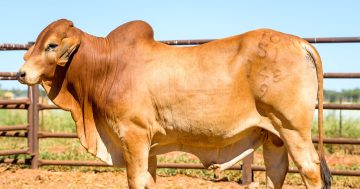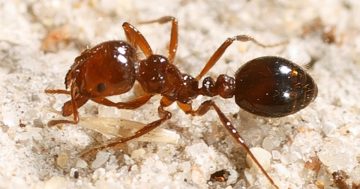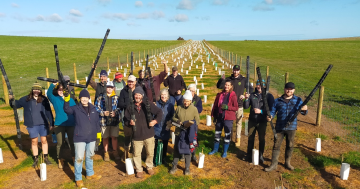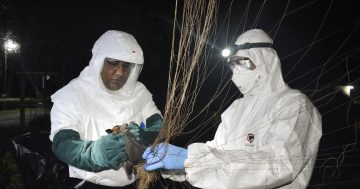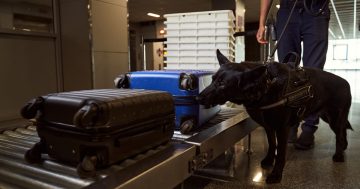 Scientists from Agriculture Victoria have been working closely with Australia’s international neighbour Timor-Leste in recent years to boost that nation’s local animals’ health and helping to safeguard Australia from exotic animal diseases.
Scientists from Agriculture Victoria have been working closely with Australia’s international neighbour Timor-Leste in recent years to boost that nation’s local animals’ health and helping to safeguard Australia from exotic animal diseases.
Funded by the Federal Department of Foreign Affairs and Trade to the tune of $3.5 million over five years, the biosecurity training by scientists, technicians and farmers in Timor-Leste has been building up over the past three years.
Initially focussed on diagnosing and managing African Swine Fever, the project has extended to look at a range of diseases including classical swine fever, foot-and-mouth disease and lumpy skin disease and will include testing of all livestock species.
Research Leader with Agriculture Victoria, Grant Rawlin said the biosecurity and emergency animal disease work supported by Agriculture Victoria enabled Timor-Leste to diagnose and control disease outbreaks which might otherwise have cost the agriculture industry up to an estimated $90 million.
“Agriculture Victoria is proud to have supported Timor-Leste’s ability to successfully diagnose and control several animal disease outbreaks within 48 hours,” Dr Rawlin said.
“The timely diagnosis and control of animal disease outbreaks means less livestock are impacted, the disease doesn’t spread as far, and farmers can quickly resume their operations”, he said.
Dr Rawlin was on-the-ground during the 2019 African Swine Fever outbreak in Timor-Leste and recently spent a month training a team of local veterinarians on how to use a range of diagnostic tools.
“The collaboration has bolstered the local agriculture industry’s response efforts and deepened our relationship with Timor-Leste,” Dr Rawlin said.
“It also gave our experts invaluable insight into on-the-ground emergency animal disease management and control.”
Australian Chargé d’Affaires at the Australian Embassy in Dili, Caitlin Wilson, said the initiative demonstrated Australia’s deep and enduring commitment to supporting Timor-Leste’s food security and economic priorities.
“Maintaining a healthy, productive and profitable livestock industry not only contributes to jobs and economic development for Timor-Leste, but also helps meet domestic demand for nutritious protein,” Ms Wilson said.
More information about Agriculture Victoria’s research visits to Timor-Leste can be accessed at this PS News link.



